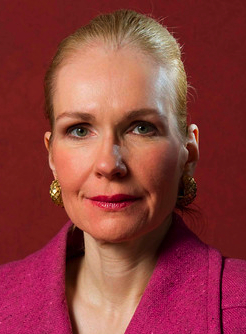Since I just got back into Twitter I've been thinking more about the strengths and weaknesses of the web. I am going to focus on what I think the internet does right, instead of belaboring what the net is doing to kids brains when they spend all day on Facebook (back in my day, we spent our useless teen time on the phone!). Yes, this is continuing to riff on my
Oral Culture vs. Literate Culture post from last week.
I know that looking at Facebook comment wars doesn't back this up, but I think when the internet really shines is arguments. The recent theory by
Hugo Mercier and Dan Sperber about how human reasoning evolved for the purpose of argument uses as evidence findings that people get more reasonable when they argue. In other words, we reason better when we are trying to persuade. I am sure that is not a general rule, but when I read a good point-counterpoint I am struck by how much I can learn -- not just by a journalist saying "he says-she says" but a real back and forth, with supporting evidence from each side, not limited to what will fit in a 1000 word newspaper piece, as interpreted by a generalist.
 |
| Yves Smith |
Ok, exhibit A:
Yves Smith shreds Ezra Klein's
review of
Inside Job. Here's a
bio of Yves Smith if you didn't know who she was. Basically what this amounts to is an expert with 25 years of experience taking down a hasty journalistic essay, piece by piece. Yes, it has some scholarly ass-kicking, reminiscent of the letters section of the NYRB, but it backs it up with links and evidence. Smith is relentlessly critical of Klein, but retains an appreciation for the storytelling ability of Michael Lewis, Klein's apparent "expert" in explaining the financial crisis. The piece is very long, but I found it very illuminating, and synthesized a lot of my conclusions about the financial crisis: We should not blame a few evil greedy bankers at the top, nor should we shake our heads and say that our international banking system is so complicated no one could have predicted it. This was a systemic diffusion of responsibility, much like
the bystander effect, a well-documented phenomena in social psychology in which people are less likely to aid someone in need when there are many bystanders. Further, it was a complete capture of the levers of regulation by the industry meant to be regulated. By the way, some comments are typical bickering, but there was one that included a long review of Inside Job, by Dave Stratman, who seemed to be basing it on his
earlier review.
 |
| Zeynep Tefukci |
Why did I like this? Because it was not just someone explaining the financial crisis, but arguing with other people, explaining why they were wrong (or incomplete). Why does it show what's great about the web? Because I think the role of the generalist journalist is (and should be) declining. Previously, popular modes of mass communication were limited by space (newspaper columns) and time (deadlines, no journalist can be expert in everything they cover) in a way that they are not now. I don't need the
New York Times to employ a sociologist of technology, but when an issue comes up, I would rather read
Zeynep Tefukci than Bill Keller when considering the effects of
twitter. She is a professional in that field, knows a lot of the evidence, thinks about this stuff when she goes to bed at night, and has several days to follow many of the different subthreads of Keller's argument. Keller, a really really smart guy,
can read the articles that Tefukci sends, criticize them and then cites as evidence in response the following:
My sense of Facebook, not based on research but based on some experience and observation, is that for some people Facebook creates a kind of friendship that is more superficial than the kind that grows out of hours spent together in one another’s company. Of course, social media is a way to keep in touch with real friends and expand your network of more casual, less intimate relationships. But it also makes it possible to feel like you have a meaningful social life when, in reality, you are missing something. I did not offer this as a scientific fact but as an observation and a concern.
He ends the letter with a smarmy, "and now I have to go earn a paycheck." This is exactly it. If I am interested in this issue, I want somebody like Tefukci, who looks for evidence, interprets it within a context of other evidence, who is dogged and persistent. If some evidence is lacking, then look for more. (Here is more, by the way). I want to read someone who wants to stick around and argue, I don't want someone to make a few "observations," share a few "concerns," and then leave. I don't want a smarter generalist, who's got great "general critical thinking skills" and is an expert at making anything readable, a nice narrative, and interesting. I want someone who has found this issue interesting for 25 years, and is going to find this issue interesting for another 25. I'll skim a little, forgive typos, ignore a little jargon here and there, follow and appreciate the links. And I'll tune in more and more, to my trusted sources on specific issues, not a single trusted source on general issues.


1 comment:
Nice piece, but I believe it's Ms. Tufekci.
Post a Comment